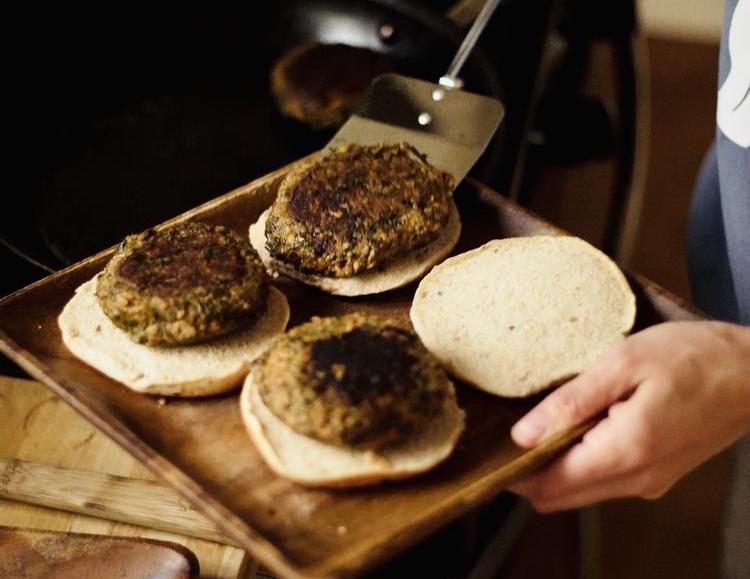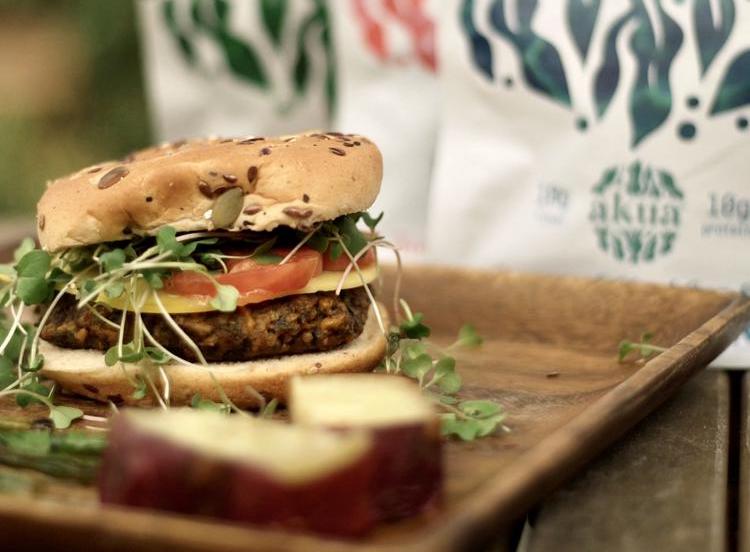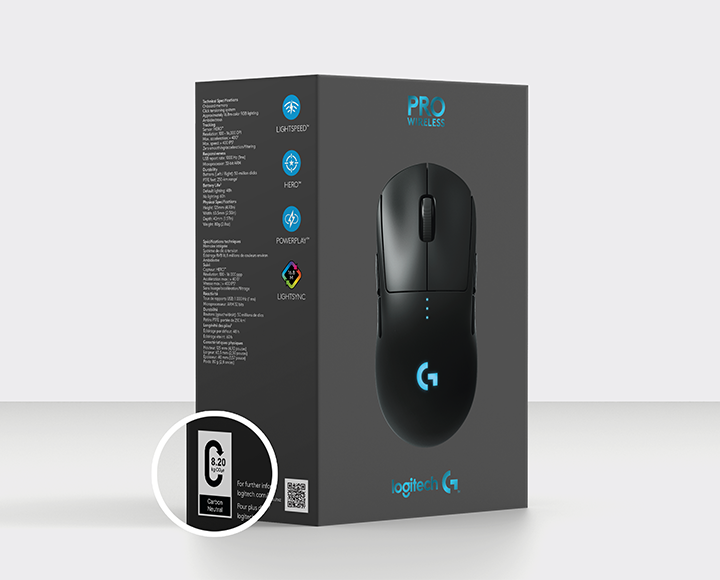For the past 16 months or so, I’ve been caught up in intermittently trying to follow a “migraine relief” diet suggested by my ear doctor. No, I’m not suffering from debilitating headaches (thank goodness) but I do have a hearing issue that is indicative of inflammation caused by certain foods. And it beats hearing things in different pitches in each ear.
I won’t bore you with the details of what I’m supposed to eat other than to say 1) that the approach has worked and 2) if I were keeping a vegan diet, I would be miserable because many of the protein staples — including soy and things that are fermented — are verboten.
My search for plant-based protein that passes muster, along with my burgeoning interest in ocean farming (ala my last post), led me to a company in Portland, Maine, called Akua, that specializes in foods derived from kelp. Its main product is a kelp jerky line. Akua also makes pasta and (the main point of this post), it is also testing a line of kelp burgers. (I found out about the product from one of my GreenBiz colleagues who writes about sustainable food.)
After some reflection, I decided to give the burgers a try and ordered a package of 12 in early December. (It wasn’t cheap: $36.99 for the box, which the company needs to ship to you directly.)

Fortunately, that gamble paid off: I’m pretty easy to please, but my husband has more discerning tastes (or else, he’s just crankier. I’m happy to say that both of us are going to be more than happy to finish off the entire package in our freezer sooner rather than later. The texture and taste were much more pleasing than the other burgers we’ve tried, without trying to be too much like the “real thing.” We’re eating them in a burger-like format (no bun, just condiments like mustard and wasabi aioli) but the company recommends trying them as part of a Bolognese sauce or falafel.
Two other things to know about this product:
- Aside from kelp, the listed ingredients include crimini mushrooms, pea protein, black beans, quinoa, coconut aminos, chickpea flour, potato and pea starch, nutritional yeast, tomato powder, EVOO (aka extra virgin olive oil), kosher salt, pepper, garlic, onion, smoked paprika and celery seed. (Technically, the onion and yeast can be migraine triggers, but I haven’t had any noticeable reaction.)
- The packaging came in a box that makes the sustainability wonk in my cringe, including polystyrene and dry ice to keep things chill. BUT, the company included a flyer apologizing and pointing customers to a crowdfunding campaign meant to help finance changes. “Our Kelp Burger is in its pre-launch phase and we don’t intend on launching officially until we’ve committed to a sustainable alternative,” the flyer notes. (It has already surpassed the money-raising goal, handily.)
After buying the burgers, I disclosed my identity to one of the co-founders, Courtney Boyd Myers, since she actively reached out to test customers for feedback, just to warn that I was gonna post this blog.
Akua (which used to be known as Beyond the Shoreline) sources the kelp from women-owned farmers off the coast of Maine. It picked seaweed as its chief ingredient because of its potential to sequester carbon dioxide, especially when compared with the animal husbandery methods required to raise cattle.
“If you think about food systems with kelp, it doesn’t require dry land or fresh water or fertilizer or feed to grow, so it’s what is called a zero-input food,” she told Fast Company in November. “If you can grow zero-input food abundantly to feed the planet, you’re in a really good place.”
According to the information Akua has published with its burger launch page, it hopes to sell the burger in retail stores starting in 2021, on the online site Thrive Market, and in restaurants (it is already available in Los Angeles).
If you come across the burgers, I recommend taking the plunge (so to speak).
Want to be alerted when I post new articles?




